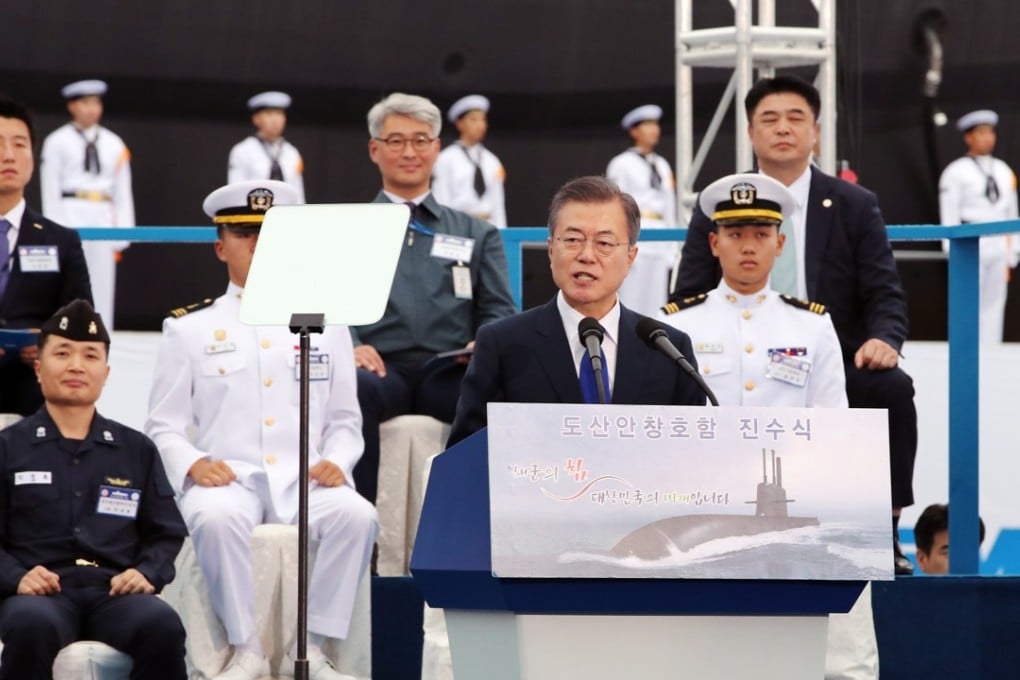Korean summit: can Moon and Kim deliver Trump a nuclear win, or is it all talk?
The South Korean leader faces a major test over his diplomacy as doubt grows over Pyongyang’s willingness to disarm

“I have confirmed the sincere intent of Chairman Kim and President Trump a number of times,” Moon said on Monday. “I believe if dialogue opens up and the two leaders sit down together, there can be rapid progress on the nuclear problem.”
The liberal leader, who met Kim in April and May, last week called on Washington and Pyongyang to make “bold decisions” to progress on denuclearisation.
Last month, Trump cancelled a planned trip to North Korea by Secretary of State Mike Pompeo, citing a lack of “sufficient progress” on denuclearisation.
Pyongyang destroyed its Punggye-ri nuclear test site and facilities at the Sohae missile-testing ground this year, but experts played down both moves as reversible while subsequent satellite imagery pointed to recent activity at a uranium enrichment site.